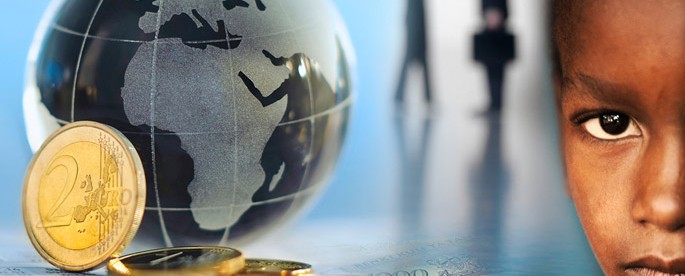
Fluxos financeiros ilícitos “Agravam Muito a Pobreza e Opressão em Muitos Países em Desenvolvimento”
A GFI Estima que as Saídas Ilícitas Drenam 5,5% do PIB da África Subsariana anualmente
JOANESBURGO, África do Sul – Especialistas africanos e internacionais sobre direitos humanos e dos fluxos financeiros ilícitos reúnem-se em Joanesburgo, África do Sul esta semana para uma conferência de vários dia as relações entre a transparência financeira e os direitos humanos em África.
Organizada pela Global Financial Integrity (GFI) — em parceria com a Fundação Friedrich-Ebert-Stiftung (FES) e o Instituto de Direitos Humanos da International Bar Association (IBAHRI) —o evento baseia-se na Declaração de New Haven sobre os Direitos Humanos e a Integridade Financeira (Declaração de New Haven), que reconheceu que “os direitos humanos e a integridade financeira internacional estão intimamente ligados.”
By Tom Cardamone, April 23, 2015
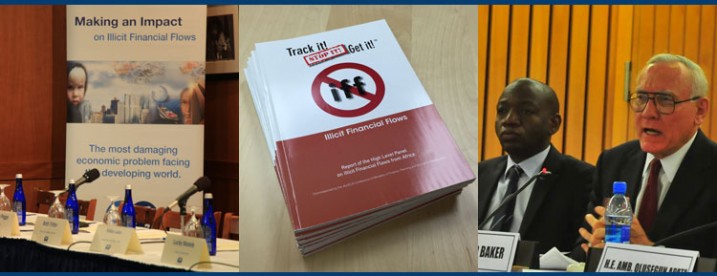
A Quarterly Newsletter on the Work of Global Financial Integrity from January through mid-April 2015
Global Financial Integrity is pleased to present GFI Engages, a quarterly newsletter created to highlight events at GFI and in the world of illicit financial flows. We look forward to keeping you updated on our research, advocacy, high level engagement, and media presence.
The release of this quarter’s newsletter was delayed in order to include the high level roundtable GFI held on April 17. The following items represent just a fraction of what GFI has been up to since December, so make sure to check our website for frequent updates.
GFI’s High Level Roundtable: IFFs, FfD, and SDGs: Global Perspectives
Global Financial Integrity was pleased to host a high level roundtable on April 17 that focused on the relationship between illicit financial flows (IFFs), Financing for Development (FfD), and the Sustainable Development Goals (SDGs). Respected members of the public, private, academic, civil society, and multilateral sectors from around the world provided their perspectives on how to tackle IFFs, improve domestic resource mobilization, and strengthen the development of financial management.
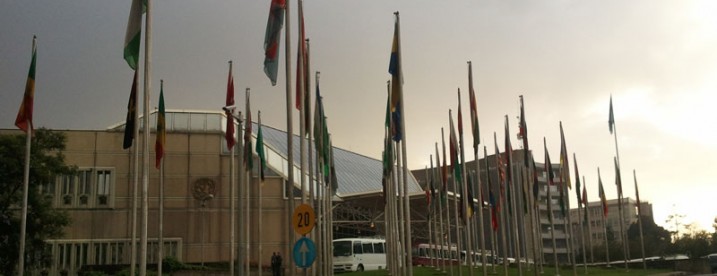
Game-Changing Recommendations Urge Institutionalization of Efforts to Combat Illicit Flows, Promote Financial Transparency
Mbeki-Led Group Also Calls for Public Registries of Beneficial Ownership, Public Country-by-Country Reporting for Multinationals
WASHINGTON, DC / ADDIS ABABA, Ethiopia – Global Financial Integrity (GFI) welcomed a new report from the African Union (AU) and United Nations Economic Commission for Africa’s (UNECA) High Level Panel (HLP) on Illicit Financial Flows from Africa as a game-changer in the movement to curtail illicit financial flows and promote financial transparency. Chaired by former South African President Thabo Mbeki, the HLP’s final report recommends putting efforts to curtail trade-related illicit flows—constituting the vast majority of measurable illicit financial flows (IFFs)—foremost in African and global efforts to curb the ongoing illegal outflow of African wealth.
By Joseph Spanjers, January 20, 2015
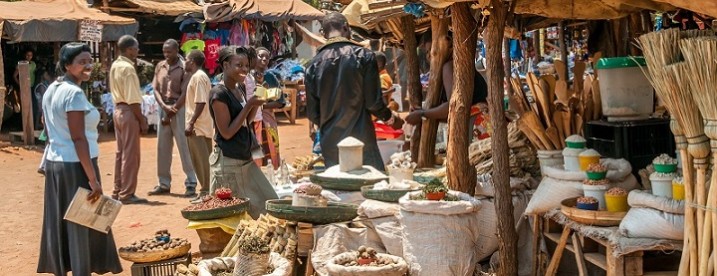
As a Percent of GDP, Sub-Saharan Africa Suffers the Largest Illicit Outflows of Any Region in the World
Global Financial Integrity’s (GFI) latest annual report on illicit financial flows–released just last month–estimates the volume of illicit financial outflows from the developing world from 2003 to 2012. It is the first report to estimate these flows for 2012, when they reached a record US$991.2 billion.
Already, this US$991.2 billion figure is being cited quite a bit; it is the main figure cited in many of the articles of we’ve seen on the report in the media. Take, for example, this story in The Guardian, this article from Reuters, or this piece in The Wall Street Journal. It’s the big, flashy, almost-trillion dollar number.
However, I’d like to draw your attention to a different figure, one that emphasizes even more clearly the implications of illicit financial flows on development: 5.5.
By Tom Cardamone, October 2, 2014
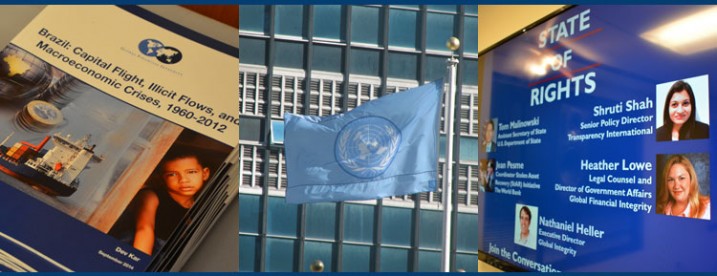
A Quarterly Newsletter on the Work of Global Financial Integrity from June through September 2014
Global Financial Integrity is pleased to present GFI Engages, a quarterly newsletter created to highlight events at GFI and in the world of illicit financial flows. We look forward to keeping you updated on our research, advocacy, high level engagement, and media presence. The following items represent just a fraction of what GFI has been up to since May, so make sure to check our new website for frequent updates.
U.S.-Africa Leaders Summit
The big news this quarter was the U.S.-Africa Leaders Summit held in Washington, D.C. in early August, which brought together leaders from fifty African nations with President Obama, and included a ground-breaking announcement that a joint high-level working group on illicit financial flows would be formed. GFI participated in the summit’s Civil Society Forum as well as several additional side events, and were proud to partner with the Open Society Foundations (OSF) and other organizations to host the event “Resources for the Future: Partnering with Civil Society for Transparency and Accountability in Africa,” which celebrated the role of civil society in advocating for transparency and accountability in Africa and discussing ways to make further progress. The high-caliber roster of speakers are too numerous to list here, but included Vice President Joseph Boakai of Liberia; George Soros, founder of OSF; Mo Ibrahim, founder of the Mo Ibrahim Foundation; and Mojanku Gumbi, a trustee of the Thabo Mbeki Foundation. The public event was followed by an African-U.S. civil society working session.
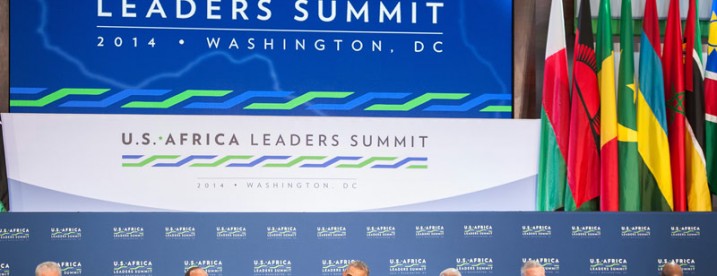
Working Group Must Address Trade Misinvoicing and Role of U.S. Business and Government in Facilitating Illicit Finance to Be Truly Effective, Warns GFI
Illicit Financial Flows Drain US$55.6bn Annually from African Continent, Sapping GDP, Undermining Development, and Fueling Crime, Corruption, and Tax Evasion
WASHINGTON, DC – Global Financial Integrity (GFI) welcomed the announcement from the White House and African leaders today regarding the establishment of a bilateral U.S.-Africa Partnership to Combat Illicit Finance, but the Washington-DC based research and advocacy organization cautioned that any effective partnership must be sure to address deficiencies in both the U.S. and in Africa that facilitate the hemorrhage of illicit capital from Africa.
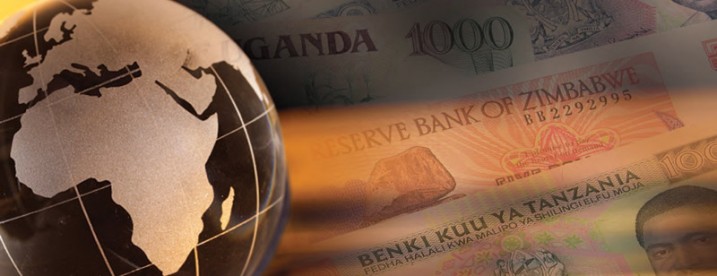
Illicit Financial Flows Draining US$55.6bn Annually from Continent
U.S. Must Address Its Role as a Major Facilitator of Such Outflows
WASHINGTON, DC – As African leaders descend on Washington this week for the historic U.S.-Africa Leaders Summit, Global Financial Integrity (GFI) called on the Obama Administration and Heads of State from across the continent to prioritize efforts to curtail illicit financial flows from Africa, which GFI estimates cost the continent roughly US$55.6 billion per year over the past decade.
By Grace Zhao, July 24, 2014
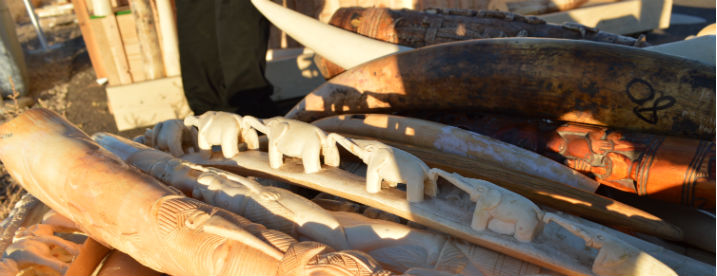
Any Effective Effort to Save Rhinos, Tigers, and Pandas from Extinction Must Tackle the Anonymous Companies that Propel the Illegal Wildlife Trade
Wildlife trafficking is more than illegally killing exotic animals; it is part of a complex criminal network that makes use of anonymous companies to illegally transfer both goods and money.
The illegal wildlife trade consists of the poaching, sale, and trade of exotic wildlife. Animals are used for food, medicine, commercial products, and even as pets. The illegal trade hosts a bevy of clientele in both developing and developed countries.
We probably all know that wildlife trafficking can be grisly and disturbing. Rhino horns are hacked off, turtles are stuffed into suitcases, and bear gall bladders are milked from living animals. The impact on biodiversity is astounding. According to our 2011 report, Transnational Crime in the Developing World, only 500,000 elephants exist today compared to a population of 1.2 million in the 1970s. The world’s tiger population has plummeted to just 3,200—down 95 percent since 1900, and an entire species of Rhino went extinct in 2009.








